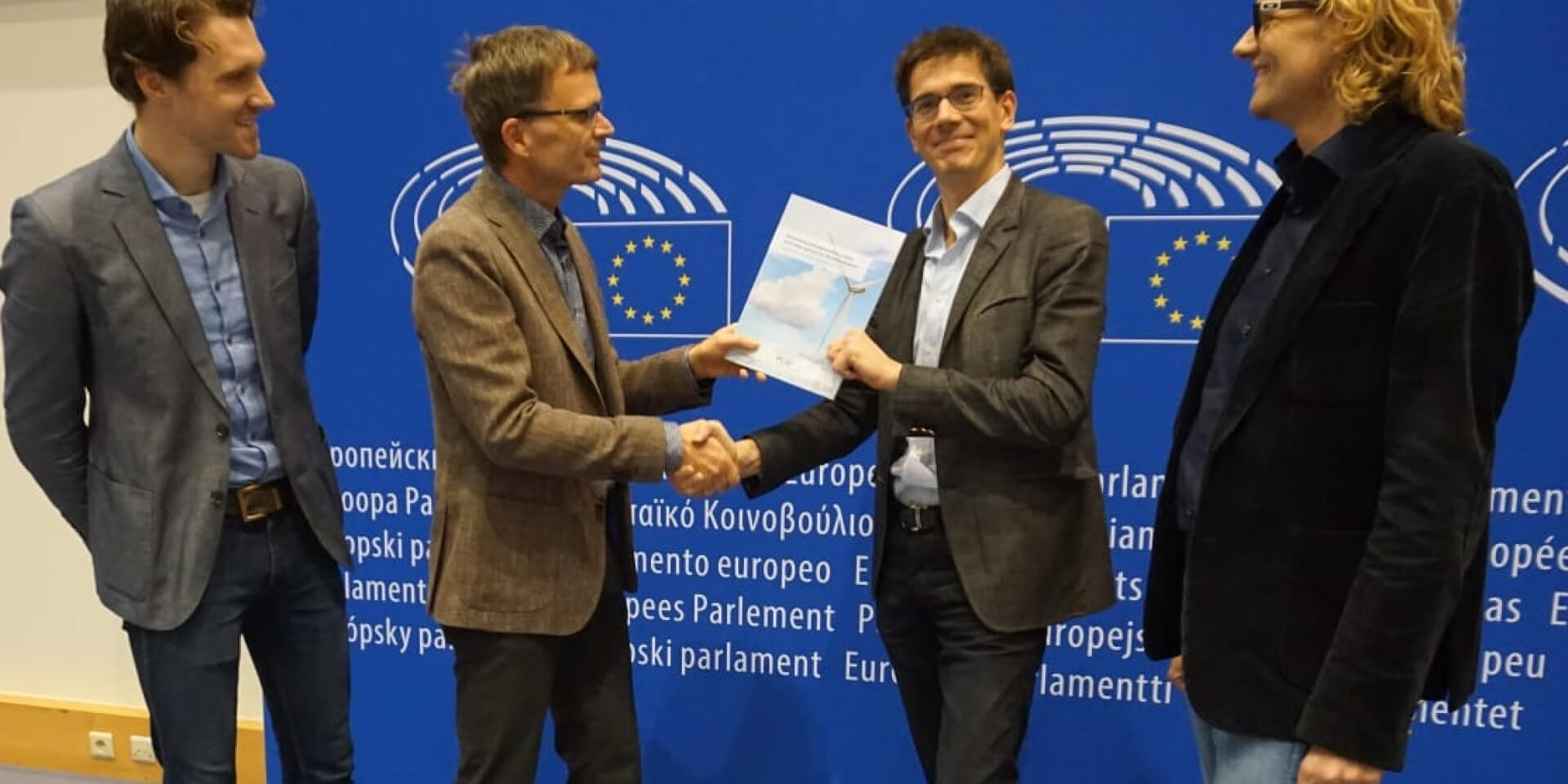
Fourteen financial institutions, united in the Platform Carbon Accounting Financials (PCAF), have made considerable progress in the past year in calculating the CO2 impact of the assets they manage. To date, they have applied the methodology to more than one trillion euros of the aggregate assets managed, almost half of the total. After further analysis of this data, the members will report on this in their annual reports.
This morning the taxonomy law, framework for sustainable finance, was presented to the economics and environmental committees of the European Parliament. Eickhout is the leading candidate for the Greens in the upcoming European elections, and member of the European Parliament’s environment and economic affairs committees: “PCAF’s strong suit is that financial institutions have started before they are obliged to do so. This shows legislators policies on sustainable investments can actually work. We simply do not have the time to wait for the perfect methodology before moving to real, tangible action to green the financial sector. Thanks to initiatives such as PCAF, we finally receive better insight into total emissions – and can widen the debate beyond just green investments. Ultimately, sustainable finance will only work if we not just define green investments, but also highlight those investments that are most harmful for the climate and the environment and therefor need to be avoided. Only then can we speak of a financial sector which is truly Paris-proof.”
The Dutch banks, insurers, fund managers, pension funds and pension administrators share their experiences in the report by means of case studies, as well as explaining the calculation method used. The ultimate goal of the PCAF methodology is to work towards a portfolio with a low CO2 impact, in accordance with the Paris Convention on Climate Change. An important next step is to relate CO2 emissions to global warming based on scientific insights.
“The Paris Agreement sets out a clear timetable for the transition to a carbon neutral economy. It is an enormous task, and one in which the role of the financial sector cannot be underestimated. After all, the projects and infrastructure needed for this transition will have to be financed for which a substantial redeployment of capital is needed. Climate change and the transition to a carbon-neutral economy also entails risks for the financial sector. As a supervisory authority, we want institutions to effectively identify and manage these risks. If financial institutions properly manage these risks, we expect this will result in a redeployment of capital to green activities. The PCAF disclosure method enables financial institutions to measure the carbon impact of their portfolio and to set targets: it offers a conduit for the redeployment of capital to green activities”, says Frank Elderson, executive director supervision at De Nederlandsche Bank, the Dutch financial regulator.
Financial institutions can exert influence on the carbon footprint of companies by taking the carbon footprint of companies into account in their investment decisions and by entering into a dialogue about the carbon footprint of companies they invest in or finance.
This fact forms the basis of the PCAF, which is one of the first initiatives in which financial institutions work together to reduce CO2 emissions. The members are the banks ABN AMRO, ASN Bank, Rabobank, Triodos Bank, Van Lanschot Kempen and de Volksbank, a.s.r., pension funds PMT and PME, asset managers ACTIAM, Achmea Investment Management, MN, Robeco and development bank FMO. At the 2015 Paris Climate Conference, the first PCAF participants committed themselves to climate improvement in the Dutch Carbon Pledge.
New participants subscribe to this pledge upon joining the PCAF.
Piet Sprengers of ASN Bank, chairman of PCAF, said, “If something has become clear in the past year, it is the growing urgency to keep global warming below 1.5 degrees no matter what. This task has made the work of PCAF even more relevant, because the financial sector, too, is indispensable for the necessary transition to a low carbon society in the next ten years. The members of PCAF are well aware of this and therefore work together to come up with effective methods for setting goals, measuring their impact and working towards the desired result.”
In two years, the PCAF members have developed a uniform, open-source and transparent methodology enabling financial institutions to set and measure CO2 targets.
The new report contains such methods for listed shares, project funding, government bonds, mortgages, corporate financing, property and as of this year also for corporate loans and indirect investments. In addition, the members of PCAF want to encourage other financial institutions to get started with it and join the platform.
The PCAF members share best practices, discuss dilemmas and work together to improve the methods. In addition, the methodology is propagated internationally and the report will soon be presented at the 24th climate summit in early December in Poland.
Amalgamated Bank, the largest trade union bank in the United States, was inspired by the first PCAF report and the progress made. The bank is the first financial party in the United States to embrace and use the methodology.
“Amalgamated Bank has committed to leading a process of adapting the Carbon Accounting Platform for Financials developed by our European colleagues for North American banks so that we too can measure the emissions financed through our lending. We believe this is a logical next step that follows from our prior commitments of being 100% renewable energy and net-zero carbon in our operations. It is also an essential step in order for our economies to meet the goals of the Paris Climate Agreement. We believe a collaborative experience is critical to the success of this work”, according to Keith Mestrich, CEO Amalgamated Bank.